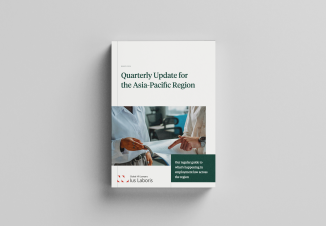
This case involved Mr Arachchige, who in 2015 entered into a Services Agreement with Rasier NZ and Uber BV (both members of the Uber Group, collectively Uber). That Services Agreement provided:
From 2015 to 2019, Mr Arachchige utilised the Uber Driver App at varying times of the day and on different days of the week. In total he accepted 5,623 of the trip requests sent to him via the Uber Driver App and rejected 448 requests.
Mr Arachchige’s access to the Uber Driver App was deactivated in June 2019 after Uber received a passenger complaint. Mr Arachchige was not aware of the details of the complaint or given an opportunity to respond before the Uber Driver App was deactivated. He raised a personal grievance for unjustified dismissal pursuant to the New Zealand Employment Relations Act. As a first step, that necessitated consideration of whether he was in fact an employee or not.
In considering this issue, the Employment Court stated that while similar cases had arisen in Australia and the UK which identified factors that likewise would be relevant in New Zealand, ‘ultimately Mr Arachchige’s case falls to be determined on the evidence before the Court and pursuant to New Zealand law’.
Section 6 of New Zealand’s Employment Relations Act requires the Court to determined ‘the real nature of the relationship’ between the parties, having regard to all relevant matters including the intention of the parties.
The Court found that the Services Agreement and how the relationship operated in practice suggested there was not an employment relationship, for reasons including:
As the Court found there was no employment relationship, Mr Arachchige was not entitled to bring a personal grievance under the Employment Relations Act.
While this case is very significant, particularly as the status of Uber drivers is receiving legal attention in several other jurisdictions, the Court in this case stressed ‘[t]he inquiry is intensely fact-specific and only deals with Mr Arachchige’s situation’. The extent to which this judgment will resolve the question of employment status for all Uber drivers in New Zealand therefore remains to be seen.
Arachchige v Rasier New Zealand Ltd & Uber BV [2020] NZEmpC 230


